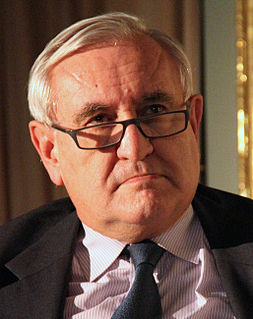A Quote by David Lidington
The treaties of the European Union say that, once a country has decided to leave, then they are excluded from the treaty after two years, unless there is unanimous agreement to extend that period.
Related Quotes
Back in 1956, we signed a treaty and surprisingly it was ratified both by the Supreme Soviet of the Soviet Union and the Japanese Parliament. But then Japan refused to implement it and after that the Soviet Union also, so to say, nullified all the agreements reached within the framework of the treaty.
I should also say that apart from the negotiations that are taking place within the WTO, we are ourselves involved in all manner of bilateral negotiations, or, if they are not bilateral, with the South African Customs Union and the European Union. All the member countries of the European Union have now ratified the agreement that we have with the EU and that opens up the EU market in various ways.
Europe is sort of like the Soviet Union in the '30s and '40s. There was an argument, is it reformable or not? There is a feeling, and I think it's correct, that the European Union, the eurozone, and the euro, is not reformable, as a result of the Lisbon treaties and the other treaties that have created the euro. Europe has to be taken apart in order to be put together not on a right-wing, neoliberal basis, but on a more social basis.
The common fisheries policy essentially gave other European Union nations unfettered access to our fish stocks and - I would hope - that if we leave the European Union, we can once more see the ports of Peterborough and Fraserhead and Grimsby flourishing, because we will take back control of our territorial waters.
Here we have the Schengen agreement, and the truth is that for years we trusted each other and set border controls on the outer borders of the European Union. And as was the case with the economic and monetary union, with this step, regarding the management of the Schengen area, we did not go all the way in terms of political solutions.

































